mHealth App Development- Top Technology Trends Set to Rule in 2025

Introduction
Mobile health (mHealth) apps can transform healthcare services by increasing accessibility and convenience. M-Health app development has started gaining more prominence in line with increasing popularity of smartphones and other digital devices globally. Moreover, advancements of emerging technologies make mHealth apps more effective and powerful to overcome various challenges and improve patient care services . In this post, we will go through some major technology trends with mobile health application examples. Let’s start with the introduction and overview of mHealth app development . We will also dig deep into the core benefits of mHealth applications for the thriving healthcare sector.
Know more about Health Care Industry
Overview of mHealth App Development
Robert Istepanian coined the term mHealth way back in 2006 to describe emerging mobile communication technologies for healthcare. Simply put, mHealth or mobile health technology refers to using mobile devices and wearables to improve patient experience. It includes mHealth apps, EHRs, RPM (Remote Patient Monitoring), and telehealth platforms. Out of these types, mHealth apps are more popular among people because these apps can take care of both health and wellness.
As per the research report from the Grand View Research, the mHealth apps market will grow at the rate of 12.3 percent between 2024 to 2030 . The following graph shows the expected rise in the mHealth apps market size across medical (health) and fitness app segments. This growth seems possible with increasing usage of smart devices.

Another report from Precedence Research has mentioned that the mHealth market size is expected to cross USD 243 billion by 2030 . All these statistics show the increasing importance of mHealth applications. We can mention several mHealth examples like My Fitness Pal that have written success stories through user-friendly features and flawless performance.

Emerging technologies like AI and IoT also contribute in driving growth of mHealth apps. As the healthcare sector faces multiple challenges and strives to offer improved patient care services, these technology trends can help the sector effectively. Let’s dig deep into these trends.
Top 6 Trends for mHealth App Development
These days, mobile app development companies tend to integrate advanced features into customized healthcare apps. In such a scenario, it is interesting to jot down
1. Role of AI in mHealth Apps
We can mention the names of several industry sectors as big beneficiaries of AI/ML technologies . Healthcare sector is one of them. During recent pandemic and post-pandemic periods, healthcare organizations have leveraged the benefits of artificial intelligence in diagnoses and treatment.
The AI technique is useful in reducing the risk of human errors related to prognosis. Moreover, AI can make complex and life-threatneing surgeries safer ensuring quicker recoveries.
Talking about the role of AI in mHealth apps, we can expect that this technology will deliver advanced and personalized healthcare solutions. It is useful for giving remote consultations and health advice also. We can expect that this trend will remain continue and this technology will analyze the patient’s data more accurately to give valuable insights.
2. Blockchain will Make It More Secure
Blockchain is a name synonymous with data security. It can enhance the management of the patient’s data by ensuring the confidentiality of health records. Blockchain-powered mHealth apps enable patients to share their data securely reducing the risk of data breaches.
A blockchain can save the patient’s entire medical history securely and only authorized healthcare service providers can access to it. This can create trust among patients and improve coordination between physicians and patients.
Another usage of blockchain is in complying with standard regulations like HIPAA. Blockchain-driven healthcare apps comply with all such rules and give patients a secure and transparent experience.
3. IoT Ensures Continuous Monitoring
The healthcare industry has adopted IoT technology effectively. This trend will get more strength in coming years because IoT can offer continuous remote monitoring. Healthcare apps based on IoT can provide patients with comprehensive healthcare and increase their comfort.
Furthermore, such mHealth apps can collect valuable information of the patient’s health and monitor their conditions. A reliable mHealth app development services provider can integrate the app with advanced medical equipment to carry out better treatment procedures. IoT-based mHealth apps can handle ECG monitoring, body vital measuring, rehabilitation process, etc.
4. Wearable Technology Improves Tracking
Wearable-powered health devices including smartwatches and fitness trackers are gaining ground swiftly. These devices can make mHealth apps capable of offering real-time insights by monitoring various health metrics including heart rate and sleep patterns. Healthcare service providers can monitor remote patients effectively using the wearable technology.
Think of Apple Health app. Its integration into Apple Watch makes it possible to track health parameters and share their data with respective healthcare professionals. In coming years, more wearables and related apps will come to improve health monitoring. They will empower physicians to make informed decisions.
5. Telemedicine will Go to a New Level
Telemedicine is a revolutionary concept that has increased the scope and reach of the healthcare sector. It has worked wonders in remote areas where little medical facilities are available. A telemedicine app can assist healthcare organizations to increase accessibility of their services to remote areas.
mHealth apps with telehealth-related features including remote patient monitoring, video consultations, and secure messaging benefit patients. These features can save time and costs for patients leaving in rural areas. Healthcare service providers can monitor such patients continuously using telemedicine apps.
Advancements in technology can combine the features of telemedicine with wearables and AI. It will increase the adoption of this concept in the healthcare sector.
6. Big Data Analytics for Personalized Insights
Big data analytics can play a vital role in analysing the patient’s data and derive actionable insights. Implementation of big data analytics in mHealth apps can manage all the data-related processes effectively. For example, big data can help in managing resources in the hospital by keeping a record of hospital staff and doctors. Another major use of big data is in managing electronic health records (EHRs).
Mobile health apps can store and analyze all the necessary information including the patient’s height, weight, and medical history with the help of big data features. We can expect that this technology will give more personalized insights over the period by providing advanced and accurate insights in real time.
Apart from these trends, it is interesting to see how healthcare organizations can leverage evolving technologies in women wellness applications, medication reminder apps, and mental health apps.
mHealth App Examples and Scope
The mHealth sector encompasses a wide variety of applications designed to enhance health conditions and patient care. Examples of popular mobile health apps include fitness and wellness apps such as MyFitnessPal, telemedicine apps like Teladoc, chronic disease management apps like MySugr, and mental health apps like Headspace.
Let's explore the scope of mHealth app development . Integration of AI, IoT, and wearable devices can open the doors of new possibilities for personalized healthcare services . Moreover, increasing adoption of telemedicine and remote patient monitoring extends the reach of healthcare services, particularly in rural areas. We can expect that the demand for innovative mHealth solutions will increase in line with the need of higher accessibility of healthcare systems.
Concluding Lines
These days, healthcare or mHealth applications have features based on futuristic technologies including AI, blockchain, Iot, and big data analytics. These apps are useful for offering remote patient monitoring and telemedicine services.
Apart from offering secure data sharing facility to patients, mHealth apps will become more powerful and intelligent in the future. They will become more capable of streamlining patient care services and increasing accruacy. The demand for such mHealth applications will increase in the year 2025 and beyond.
We are a renowned web and mobile app development company in the USA and India. Our in-house team of experienced developers can offer the top-notch mHealth app development services for your organization. Contact us to learn how we can assist you to address challenges of the industry so that you can give excellent patient care services.








